Fibers, a True Health Ally
Source : Nutriactis/Rouen-Normandie hospital
Why talk about dietary fibers?
Dietary fibers are naturally found in fruits, vegetables, cereals, and oilseeds. However, with industrialization and the rise of Western diets, characterized by a high consumption of processed foods (rich in fats and/or sugars), dietary fiber intake has significantly decreased, which can have repercussions on our health.
In this new article, come discover the world of fibers, from their mode of action to their health benefits, not forgetting the recommendations associated with their consumption.

What are dietary fibers?
- Components of plant foods
- They do not provide energy to the body in the form of calories.
- They escape digestion and are not absorbed by the small intestine.
- They contribute to the proper functioning of the digestive system and play an essential role in health.
Our consumption
In the Paleolithic era, hunters and gatherers primarily ate fruits and cereals and consumed up to 100g of dietary fibers each day.
Nowadays, dietary fiber consumption has significantly decreased and is well below recommended levels, particularly due to the increasing intake of refined and ultra-processed products (see newsletter).
The average fiber intake in most countries today is between 15 and 25 grams per day.
* In France, the recommendation is 30 grams per day.
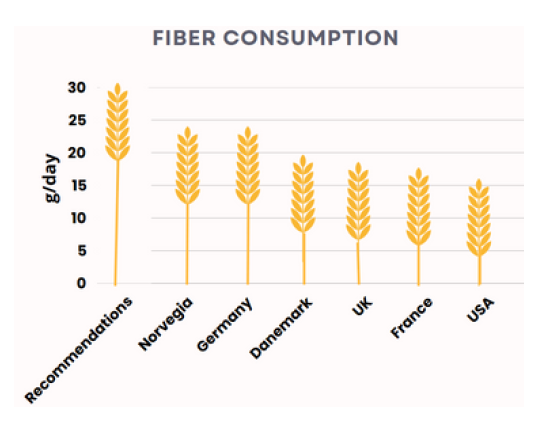
Fiber content
As the graphs illustrate, the fiber content varies from one food to another. However, it is essential to consider the amount of fiber relative to a standard serving to correctly interpret these data.
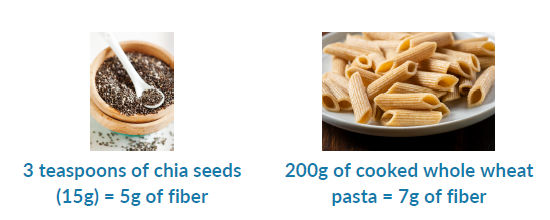
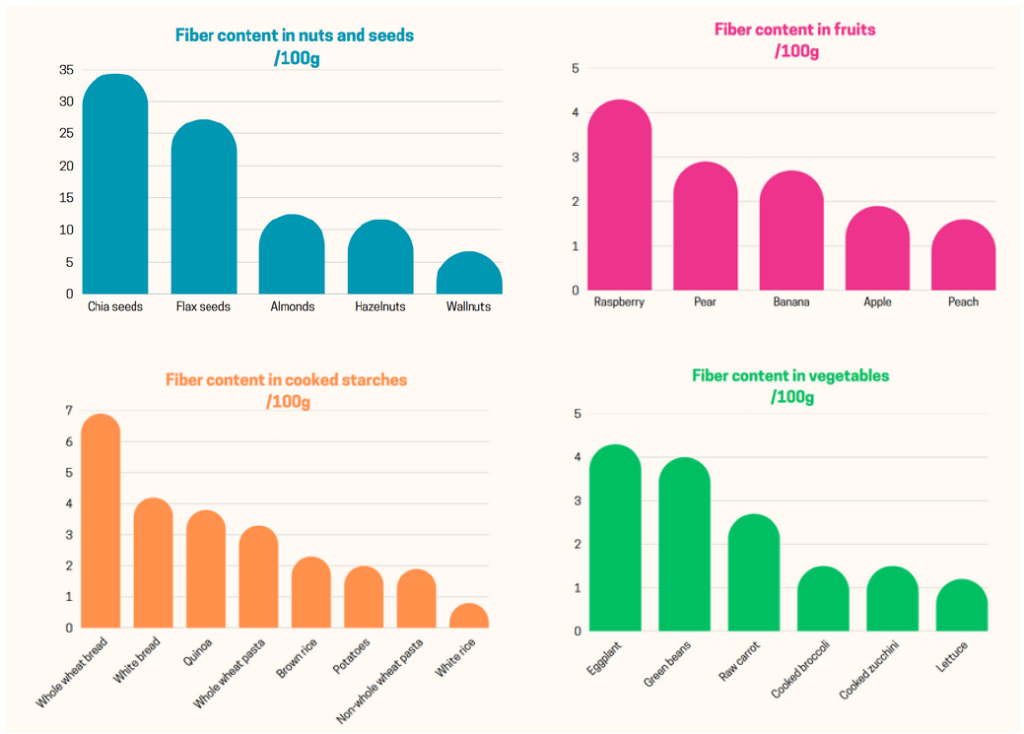
Foods rich in fiber contain different types of fiber. Therefore, it is essential to adopt a varied diet to fully benefit from all their advantages.
There are two main categories of fiber: soluble fibers and insoluble fibers.
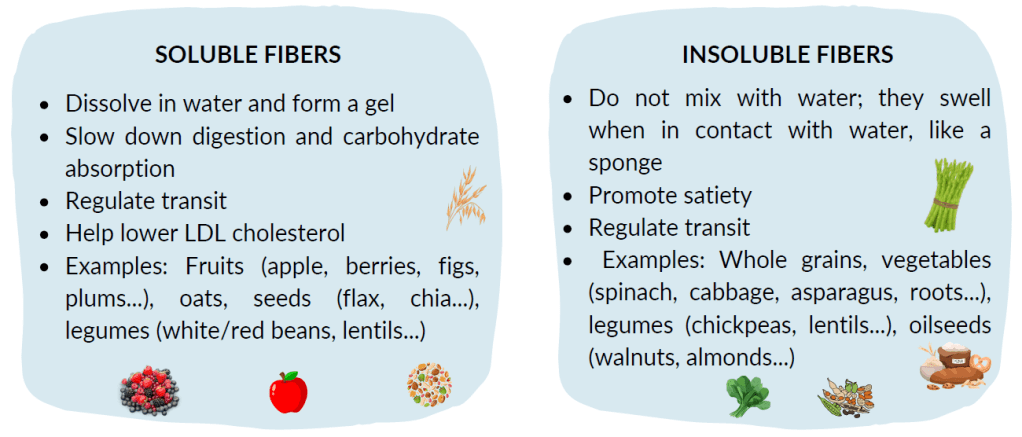
Dietary Fibers and Their Role in Health
There is growing evidence of the beneficial effects of dietary fiber consumption on human health. Recent studies highlight that the fermentation of ingested fibers by the microbiota leads to the production of short-chain fatty acids (SCFAs). SCFAs promote the growth of beneficial microorganisms, preventing the colonization of pathogenic bacteria. Moreover, SCFAs offer many health benefits, as illustrated in the diagram below:
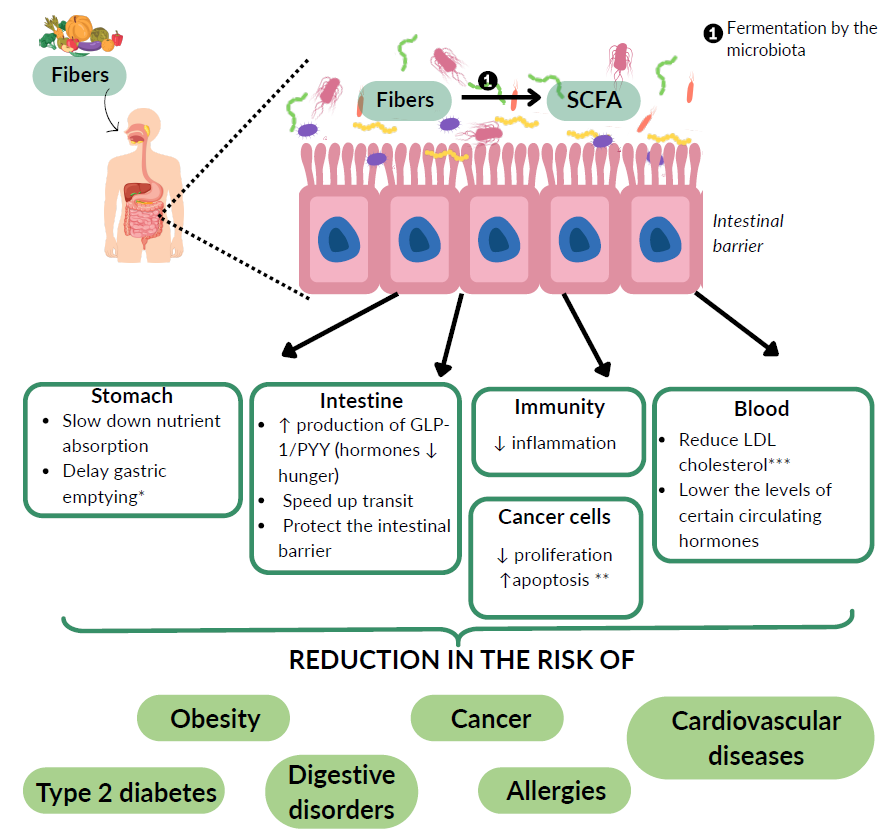
The impact of fiber consumption on health depends on the type of fiber, the amount, and the duration of intake. Specific thresholds exist for each type of fiber, which is why it’s essential to maintain a varied diet.
Note: It’s important to gradually increase your fiber intake to avoid side effects like gas and bloating. If you experience issues, don’t hesitate to consult your general practitioner.
Useful information about fiber
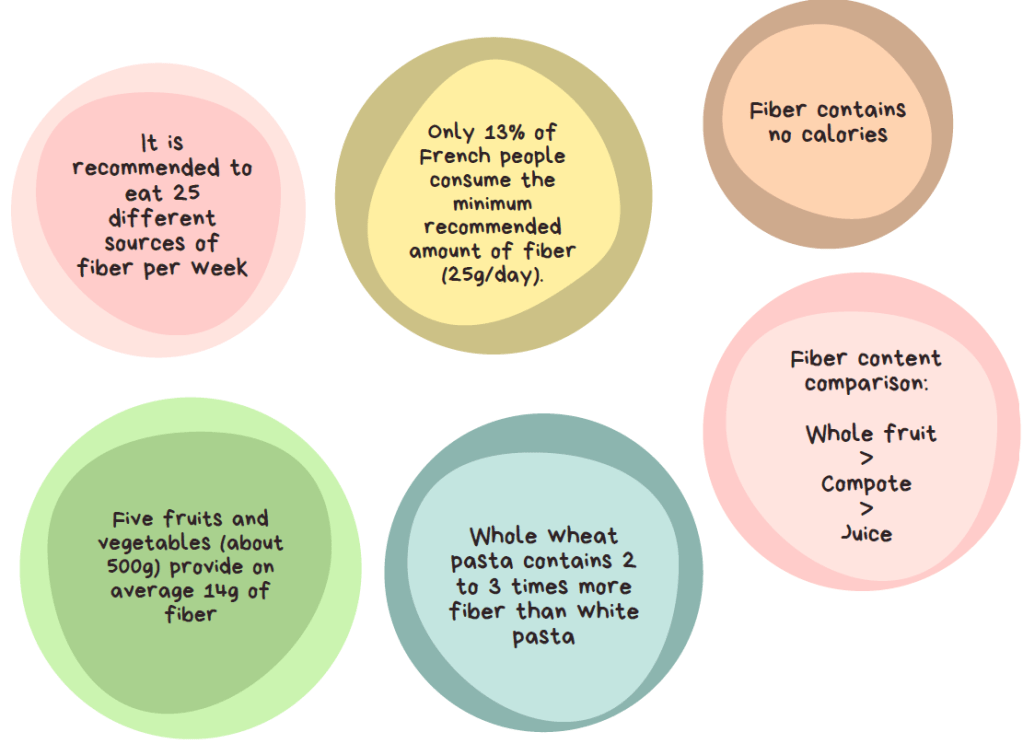
Conclusion
It is important to increase your fiber intake to meet the recommendation of 30 grams of fiber per day for a healthy adult. Consuming fiber in the recommended amounts has real beneficial effects on your gut microbiota and therefore on your overall health.
However, excessive fiber intake may also lead to unpleasant side effects (bloating, digestive issues, etc.).

Note: Gradually increase your fiber intake to avoid side effects such as gas and bloating.

-
Fibers, a True Health Ally
pdf – 7 MB